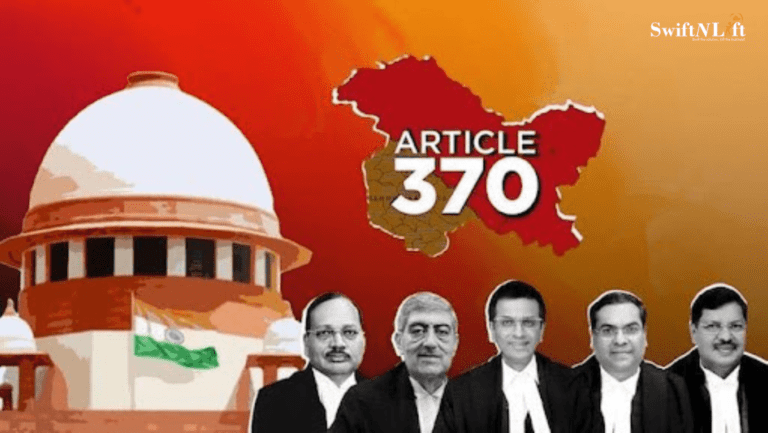
“Explore the latest Supreme Court verdict on Article 370, decoding its legal intricacies and directives. Discover the constitutional rationale, validity of presidential orders, and the call for legislative assembly elections. Gain insights into Justice Kaul’s recommendation for a Truth and Reconciliation Commission in Jammu and Kashmir. Stay informed on this landmark decision shaping India’s constitutional landscape.”
On December 11, 2023, the Supreme Court of India delivered a landmark verdict on the contentious issue of the abrogation of Article 370, a move that altered the special status of the erstwhile state of Jammu and Kashmir. The five-judge Constitution bench, led by Chief Justice of India DY Chandrachud, not only upheld the constitutional validity of the abrogation but also laid down significant directives for the future course of action.
Constitutional Rationale:
Chief Justice Chandrachud, in his pronouncement, emphasized that Jammu and Kashmir relinquished its internal sovereignty upon acceding to India. This pivotal declaration sheds light on the constitutional underpinnings of the integration of the region and underscores the court’s view on the legality of the 2019 decision.
Validity of Presidential Orders:
The court’s assertion that there was no prima facie evidence of the President’s 2019 orders being mala fide or an extraneous exercise of power establishes a critical legal precedent. This reaffirms the judiciary’s role in scrutinizing executive actions to ensure adherence to constitutional principles, providing clarity on the scope and limitations of such powers.
Temporary Nature of Reorganization:
While acknowledging the reorganization of Jammu and Kashmir into Union Territories as a temporary measure, the court’s directive for the restoration of statehood signifies a nuanced approach. This stance reflects a balance between the need for temporary administrative adjustments and the recognition of the region’s historical and cultural identity.
Call for Legislative Assembly Elections:
The court’s mandate for conducting Legislative Assembly elections in Jammu and Kashmir by September 2024 adds a democratic dimension to the verdict. This underscores the judiciary’s commitment to upholding democratic values and ensuring the participation of the people in shaping the governance of their region.
Justice Kaul’s Recommendation: Truth and Reconciliation Commission:
Justice S. K. Kaul’s concurring opinion introduces a forward-looking and humanitarian dimension to the verdict. The recommendation for establishing a Truth and Reconciliation Commission in Jammu and Kashmir underscores the importance of acknowledging past violations and fostering a path towards healing and unity. This suggestion reflects a commitment to justice, accountability, and reconciliation in post-conflict scenarios.
The Supreme Court’s verdict on the abrogation of Article 370 goes beyond a mere legal pronouncement; it reflects a comprehensive understanding of historical, constitutional, and human rights dimensions. The nuanced approach adopted by the court, coupled with the directives for restoration of statehood and the conduct of elections, sets a significant precedent for the delicate balance between regional autonomy and national integration. As India navigates its path forward, this verdict will undoubtedly shape the discourse on constitutional matters and the resolution of complex political issues.



